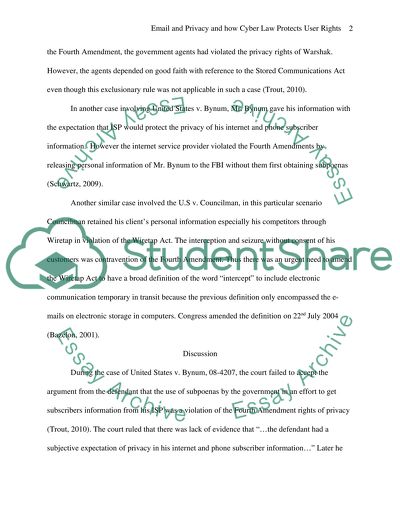Cite this document
(“Email and Privacy and how Cyber Law Protects User Rights Research Paper”, n.d.)
Retrieved from https://studentshare.org/information-technology/1425899-email-and-privacy-and-how-cyber-law-protects-user-rights
Retrieved from https://studentshare.org/information-technology/1425899-email-and-privacy-and-how-cyber-law-protects-user-rights
(Email and Privacy and How Cyber Law Protects User Rights Research Paper)
https://studentshare.org/information-technology/1425899-email-and-privacy-and-how-cyber-law-protects-user-rights.
https://studentshare.org/information-technology/1425899-email-and-privacy-and-how-cyber-law-protects-user-rights.
“Email and Privacy and How Cyber Law Protects User Rights Research Paper”, n.d. https://studentshare.org/information-technology/1425899-email-and-privacy-and-how-cyber-law-protects-user-rights.


